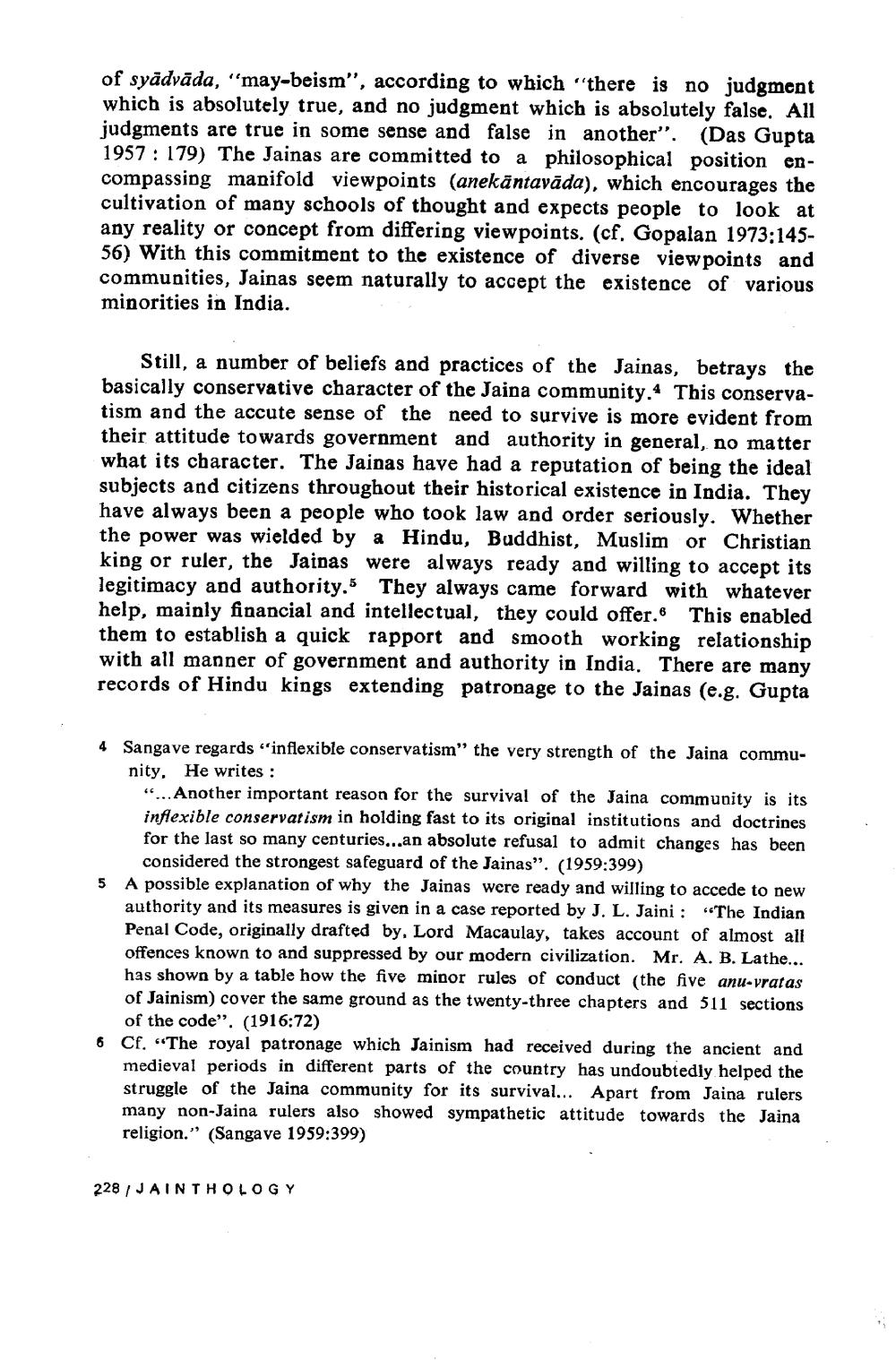________________
of syādvāda, "may-beism", according to which "there is no judgment which is absolutely true, and no judgment which is absolutely false. All judgments are true in some sense and false in another". (Das Gupta 1957 179) The Jainas are committed to a philosophical position encompassing manifold viewpoints (anekäntavāda), which encourages the cultivation of many schools of thought and expects people to look at any reality or concept from differing viewpoints. (cf. Gopalan 1973:14556) With this commitment to the existence of diverse viewpoints and communities, Jainas seem naturally to accept the existence of various minorities in India.
Still, a number of beliefs and practices of the Jainas, betrays the basically conservative character of the Jaina community. This conservatism and the accute sense of the need to survive is more evident from their attitude towards government and authority in general, no matter what its character. The Jainas have had a reputation of being the ideal subjects and citizens throughout their historical existence in India. They have always been a people who took law and order seriously. Whether the power was wielded by a Hindu, Buddhist, Muslim or Christian king or ruler, the Jainas were always ready and willing to accept its legitimacy and authority.5 They always came forward with whatever help, mainly financial and intellectual, they could offer. This enabled them to establish a quick rapport and smooth working relationship with all manner of government and authority in India. There are many records of Hindu kings extending patronage to the Jainas (e.g. Gupta
4 Sangave regards "inflexible conservatism" the very strength of the Jaina community. He writes:
"... Another important reason for the survival of the Jaina community is its inflexible conservatism in holding fast to its original institutions and doctrines for the last so many centuries...an absolute refusal to admit changes has been considered the strongest safeguard of the Jainas". (1959:399)
5 A possible explanation of why the Jainas were ready and willing to accede to new authority and its measures is given in a case reported by J. L. Jaini: "The Indian Penal Code, originally drafted by, Lord Macaulay, takes account of almost all offences known to and suppressed by our modern civilization. Mr. A. B. Lathe... has shown by a table how the five minor rules of conduct (the five anu-vratas of Jainism) cover the same ground as the twenty-three chapters and 511 sections of the code". (1916:72)
6 Cf. "The royal patronage which Jainism had received during the ancient and medieval periods in different parts of the country has undoubtedly helped the struggle of the Jaina community for its survival... Apart from Jaina rulers many non-Jaina rulers also showed sympathetic attitude towards the Jaina religion." (Sangave 1959:399)
228/JAINTHOLOGY




